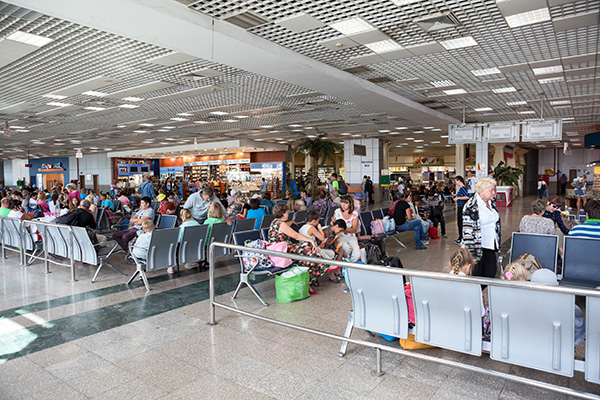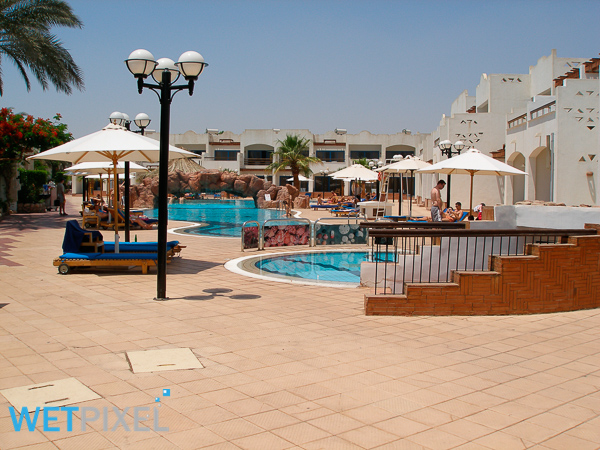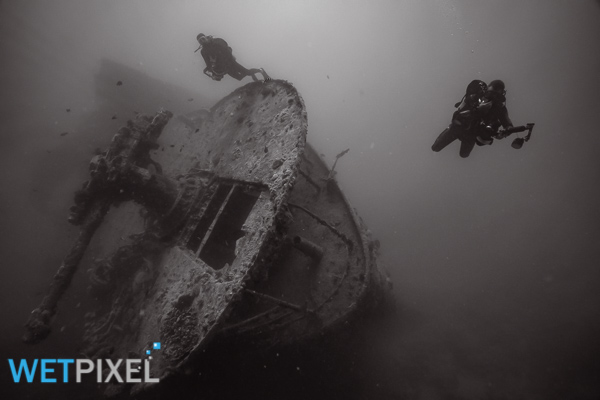Update: Electronics travel guide for underwater image makers

Hurghada airport: A Traveller’s Survival strategy
By Saeed Rashid
Like many British divers I’ve been traveling to the Red Sea for many years. In fact, it seems since I completed my PADI Open Water course in 1996 it is in fact just over 20 years.
There was a time when it seemed that divers were the only passengers on flights to Egypt. You would strike up a conversation with the person next to you assuming that they were a fellow scuba fanatic and I remember being shocked when I met my first non-diver, confused as to why they would want to visit this diving paradise. However, this exclusivity changed quickly and it became more likely to be sat next to a family escaping for guaranteed sunshine in an all-inclusive resort than a diver.
This corresponded with a boom in the number of resorts opening up and down the Red Sea coast. The Arab Spring uprisings of early 2011 dramatically affected tourist numbers, but in 2015 the unspeakable happened: Metrojet Flight 9268 bound from Sharm El Sheikh to St Petersburg, Russia was blown up by a bomb with the loss of 224 passengers and crews.
Moving forward to early 2017, things have changed. We currently cannot fly direct to Sharm (although we can via intermediary airports) from the UK but the other Red Sea airports are open for business. Then in March this year the British Foreign Office and US Department of Homeland Security announced new aviation security measures on all inbound direct flights from some Middle Eastern countries and Egypt was among them.
Under the new arrangements, passengers boarding flights from Egypt to the UK are not allowed to take any phones, laptops, tablets and/or peripheral devices that exceed certain dimensions into the cabin. Items exceeding 16cm in length, 9.3cm in width or 1.5cm in depth must now be checked in. These rules, to the confusion of British travelers and especially divers, seem to be very fluid and changing all the time. Most recently it was announced that you cannot return to the UK with any “spare” batteries, even if these are checked in.

I have recently returned from Hurghada where these new rules are in full force and below are some of my observations and a few tips I picked up to ease the process of getting through the airport.
Above all, don’t get stressed. Everyone is in the same boat and if you are stopped, smile and be helpful. After all, this is for all our safety. Time from arriving at the airport to getting to the departure gate was just over 2 1/2hrs, so arrive in good time. This is by far the longest it has ever taken me to get through an airport, although others were quicker than me. It also meant that was no time to get a drink or something to eat before boarding the plane so make sure you are well fed and watered before you set off.

Once I arrived, there were large queues awaiting baggage checks before you were allowed into the terminal. All my bags were searched twice before the check-in desk. Due to the spare battery ban I had taken some cheap fans with me to take my ‘spare’ AA batteries on my return. I placed my spare torch and camera batteries in their changers, hoping this would count as being ‘in a device’. No problem with this at all, I think mainly because they were firmly in the chargers (they did click them in and out a few times).
I had to demonstrate almost all of my camera/diving gear so be ready to put things together and turn them on. I tend to pack bags within bags and place all my electronics into one of these so they are easily reached. They seemed to like this, one even commented and smiled.
The security staff took exception to a few seemingly random items: my GPRS bag tracker caused a lot of suspicion; my dive computer transmitters; iPhone back up battery; strobes and oddly, my snoot? I managed to explain all of these but it did take some time with much head scratching from the Egyptians. Oddly, they didn’t seem to understand some basic dive gear which seems to show they are more used to typical tourists these days rather than divers.
Big security stickers were applied to my bags at this point and directly after the baggage checks I was pulled aside and checked again. Despite the stickers on my bags I had to explain many of the same devices once more. Each check was also followed by filling in your name, flight number and passport number so have this information handy. I’ve been told since that this is to demonstrate the number of searches being made.
Non-diving tourists seemed to be having the most problems, mainly because they were getting impatient and being rude to security staff with some resorting to shouting and complaining. Some of the loudest were taken into a side room for “full” checks - not to be recommended! They didn’t seem to really understand why these checks were happening or what they could and couldn’t have in their bags, even though there were signs displayed explaining the basics.
Check-in wasn’t really a problem, apart from being very slow and for the first time, actually measuring my hand luggage! Lots of people were being pulled up for overweight bags but this has always been the case with travel from Egypt.

The next security check after immigration was very much repeat of the first. Everything was taken out of my bag so it could be scanned a few times. I forgot I left a book and some cable ties in a secret pocket in my carry-on which didn’t go down well. Make sure you know where everything is and don’t try to hide anything - they will find it.
Once again, some people didn’t seem to understand the many signs and advice given about what couldn’t be taken onto the plane. There was a nice full box of batteries and a pile of nail scissors at this point! One more basic check before the gate, no problems for me here but many passengers were given “random” full checks with a few being taken into a side room.
The plane was delayed by about half an hour because 2 passengers were held up by these security measures. I think planes will wait if there are any problems.
My main bag must have been checked again airside because when I got to Gatwick the lock was missing and the zip was open. Ironically, from what I could tell, my belongings were all there apart from the bag tracker which later sent a signal from a small Mediterranean island. Not sure I will see that again!!

Of course, it does matter which official you get on the day you travel and how they individually interpret the rules. Some may get away with an item that the next person doesn’t but remember - smile, be helpful and don’t get angry or argue. Learning a few basic Arabic words is appreciated – Hello / No problem / That’s ok / Thank you. Just remember these guys aren’t just doing a job but are also trying to keep us all safe.
Don’t let the new regulations put you off. Egypt is still an amazing place to visit and very cheap after the Egyptian pound was recently devalued. Things are costing about a third of what they did last year and although this may not be as good for the locals, we can help them out by spending more.
Page 1: Introduction.
Page 2: Hurghada airport: A Traveller’s Survival strategy by Saeed Rashid.
Page 3: Egypt | Winning under the new travel rules by Terry Steeley.